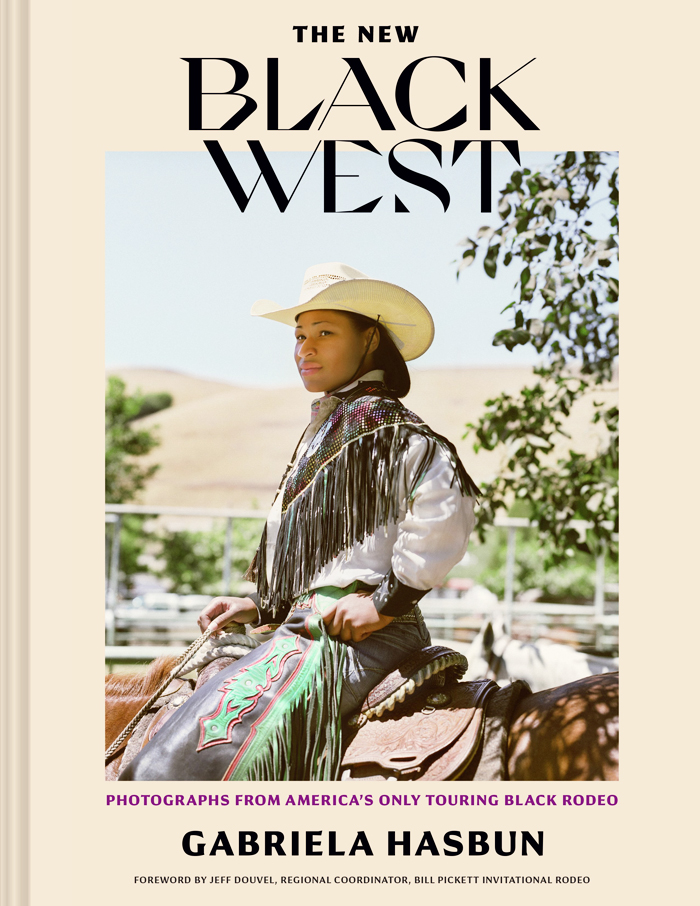c.2022, Chronicle Books $40.00 128 pages
By Terri Schlichenmeyer
The Truth Contributor
Things sure look different from five feet up.
The first time, you might feel nervous to be there; the animal you’re astride doesn’t know you and you don’t know what it’ll do. But before long, you feel like you’re in a rocking chair. You can almost see for miles and you begin to understand power. And in the new book The New Black West by Gabriela Hasbun, you see peek history between the ears of a horse.
One hundred and sixty years ago, “more than eight thousand Black cowboys rode in the western cattle drives.” They did everything that every other ranch hand and cowboy did back then but “their stories have largely been untold…”
In 1984, a promoter named Lu Vason realized one day that the “granddaddy of them all,” the Cheyenne Frontier Days rodeo, was lacking Black cowpokes. Upon returning to his home in Denver, Vason began researching and raising funds to start the Bill Pickett Invitational Rodeo, named after the “legendary” Bill Pickett, who cowboyed at the turn of the last century and was the first Black cowboy inducted into the Rodeo Hall of Fame. To this day, the Bill Pickett Invitational Rodeo, now held on the second weekend in July in Oakland, California, is the only touring Black rodeo in America.
But it’s not all ropin’ and ridin’.
Says Hasbun, the deep tradition of riding horses and roping calves is also passed on to youth in trouble, through participating stables and organizations. The rodeo is a chance to show off horse, saddle, boots and bling, since you want to be “dressed to impress” if you’re in the parade. It’s a great excuse to spend a day with horses, and to share that love with rodeo watchers who want to learn, too. The rodeo is a challenge and a way to honor those who’ve accepted that challenge in the past. It’s a way to “change the headlines.”
And the rodeo is family.
For many readers, The New Black West may be like no other book you’ve had.
There is not, first of all, much to actually read here. Author and photographer Gabriela Hasbun instead offers a nice “Artist’s Statement” in which she explains African-American cowboys in history and the Bill Pickett Invitational Rodeo’s beginnings, and she writes short captions for the photos in this book, but that’s about all there is to read.
In that sense, Hasbun lets the illustrations speak for themselves.
Browse through this book and meet men and women who are grateful for the horse that turned their lives around. Look at the gorgeous parade-worthy clothing, the custom-made (designer!) saddles, and the (literal) snake-skin boots. Then don’t be at all surprised if you find yourself looking for tickets, so you can see those things up-front and in person this summer.
This is a book you’ll page through again and again, and never get tired of doing so. It’s one you can share with the kids and maybe inspire them. The New Black West is something that’s delightfully different.

